Cataract surgery can be challenging to wrap your head around, even though it is a common and straightforward procedure. You probably have plenty of questions about cataract surgery.
One of the most critical but often forgotten questions you need to ask yourself is which IOL is best for you. Keep reading to learn more about the different types of IOLs available.
What is an Intraocular Lens?
An intraocular lens, or IOL, is an artificial replacement for your natural lens. It is a vital component of cataract surgery.
The IOL you choose is what will allow you to see. IOLs are what your surgeon replaces your natural lenses with in cataract surgery.
They do this by creating an opening in your cornea and then breaking apart your natural lens. The surgeon has to break your natural lens into pieces to make it easier to remove.
Your IOL replaces your natural lens in the membrane that the natural lens sat in. IOL manufacturers use durable materials like acrylic or silicone to produce IOLs to make them safe and long-lasting.
That way, they can provide you with clear vision for the rest of your life. Also, IOLs get coated with materials that protect against UV radiation from the sun.
There are a surprising variety of IOLs to choose from before you have cataract surgery.
Standard vs. Premium IOLs
The most basic type of IOL is the monofocal or standard IOL. The standard IOL is capable of providing vision after your natural lens is out of your eye.
But they only correct vision at one set distance, either near, intermediate or far. To have fully functional eyesight, you will need to use glasses to make up for the other distances.
You will need reading glasses if your monofocal corrects distance vision. Or you will need driving and distance glasses if your monofocal corrects near vision.
You’ll need these supplementary glasses for the rest of your life. But some vision is better than none, and monofocal IOLs provide clear vision.
Premium IOLs can provide vision at varying distances. They could potentially make your eyesight better than it ever has been in your life!
Premium IOLs alone come in several distinct varieties based on what they achieve.
Multifocal IOLs have zones in the lens itself that can focus at different distances for you. Multifocal lenses allow you to see over long distances and up-close without glasses.
Toric IOLs are custom-made for people with astigmatism. You can correct your astigmatism during cataract surgery if the IOL you select comes in a toric model.
Monofocal and multifocal lenses can come in toric models. But, these upgraded lenses may cost more than the base models.
Which IOL Is Best For You?
The best IOL for you depends on your preferences. If you would like to not need glasses for the rest of your life, you should consider a premium IOL.
If you don’t mind wearing glasses for reading or driving, then a monofocal could be an acceptable option. Most insurance plans and Medicare cover cataract surgery that uses monofocal IOLs.
Many insurance plans and Medicare do not cover premium IOL insertion. If you opt for a premium IOL, you may have to cover the lenses and procedure costs out of pocket.
Schedule an appointment at Colorado Eye Consultants in Littleton, CO, to discuss IOL options for your cataract surgery.

